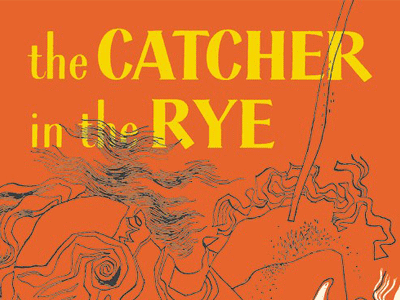“Honesty is always the best policy.”
We’re told this from a young age by our parents, our family, sometimes even teachers but it’s important to analyse why honesty is deemed so important. Honesty is linked to such character traits as being honourable and genuine. This final word, genuine, is significant regarding the topic for today: that of honesty within the creative sphere. Today, I’ll be looking at a couple of artists I admire to make the case that the style of music that is presented makes the listener engage with their songs on a more personal level.
The idea for this blog post came from my appreciation of particular artists and realising why I seem to relate or find deeper meaning from their lyrics than other musicians. It’s a realisation I’ve made over the course of the last few years: that, if the writing of something feels more personal, more raw, visceral and intimate, I become engaged with it on a deeper level, as if it seemingly means more. Let’s look at my first example.

Fiona Apple released her first album, Tidal, at the age of eighteen. Not only being an incredibly talented pianist, she also has an excellent voice – her tone able to range from a quiet whisper to a roaring, pained scream. Her style, both when singing and playing, manages to straddle a line beautifully between being intricate and also somehow feeling naturalistic, as if the lyrics are simply coming to her as she plays. Whether the lyrics of the songs across her discography are about sex, love or the inner turmoil she potentially feels, there is one quality that is undeniable: the way the music sounds and is delivered seems personal. The brutal honesty with which she describes the loneliness, detachment or fear of the characters she creates and writes about draws the listener into the plight due to such raw emotion. This can also be seen in musicians, like Trent Reznor of Nine Inch Nails. The music and the lyrics combine to paint a personality that encapsulates the singer. Without knowing anything of Apple or Reznor’s difficulties in their life, you would assume that they have been through pain, suffered great loss and used the medium of music to “deal with” some of the pain.
Here’s the problem with that, however: it’s a dangerous assumption. Writers can get ideas from many different places and, if you listen to many songs that Reznor has written, there is a likelihood that they simply can’t all be personal – certainly not to the same degree. This is one of the beauties of creation and one of the things both Apple and Reznor do so well. Yes, you can read articles about them, research their work to see which songs particularly mean something to them but I would argue, from the listener’s perspective, it actually doesn’t matter.
The beauty of their work isn’t that it’s necessarily personal. It’s that it feels personal. It creates a bond with the listener because of the emotion being conveyed and the way it can relate to another person. To assume that everything a writer creates is personal is never a stance I’ve been comfortable with, but a bond can still be created between the singer and the audience regardless. By assuming that things are personal, I feel like the audience would essentially be limiting the potential interpretations of what’s been created and, if we are to assume, we are creating ideas in our minds about musicians that could simply be fictitious. Look back at the paragraph higher up when I state that Apple has created characters when she writes. This could, of course, be completely untrue and every single song could be about her own struggles, but I strongly feel that it isn’t the audience’s place to assume that. It is within our right to interpret but never to confirm by assumption. It’s for the artist to confirm which they are well within their right to do.
Take, for example, the song ‘With Teeth’ by Nine Inch Nails. Great song with excellent lyrics about a toxic relationship. It must be about a woman, right? Wrong. It’s about Reznor’s battle with alcoholism that he struggled with before making the album. Now, of course, because Reznor has stated that is the idea and meaning behind the song, I can now categorically tell you one of the meanings of the song. However, if Reznor hadn’t admitted that, the listener could simply assume its meaning and, while I wouldn’t necessarily agree with the assumption, in it lies the beauty of the style. It creates a link between the listener and musician that doesn’t need to be literal or answered. The honesty that seems to be portrayed within the songs make us want to delve deeper into them, to work out all of their intricate meanings, but in focusing on the emotional only, we can embrace the beauty of the lyrics without putting words into our musician’s mouths. To do both is the challenge that the listener faces and really highlights the beauty and importance of interpretation.
